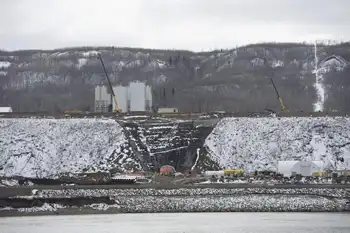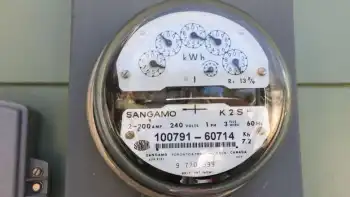Long-term green policies needed, say critics
OTTAWA, ONTARIO - Phil Ridge's business has already been whipsawed by shape-shifting federal environment policy, and the prospect of an election has made things worse.
Mr. Ridge's company, Ridge Energy Consultants Inc., performs energy audits — measuring the energy efficiency of houses before and after homeowners renovate so they can collect grants from Ottawa's EcoEnergy Retrofit-Homes program.
But that program, which was extended for a year in the budget plan, will end up in limbo if an election is called. That's a problem for Mr. Ridge because the current funding for the program runs out on March 31.
The uncertainty Mr. Ridge has experienced underlines the risks of running a business that counts on "green" government policies for its momentum. Anything the government gives can be taken away at a moment's notice, knocking the legs out from under companies that depend on continued support.
This isn't the first time Mr. Ridge has seen his fortunes dashed by a change in government policy.
When he set up his firm in 2002, it was under a Liberal initiative to promote energy efficiency. That program died when the Conservatives won the 2006 election, but was revived as EcoEnergy about a year later. Unfortunately for Mr. Ridge and others who rebuilt their businesses based on the new incentive, Ottawa announced last March that the program had only one more year to live. That was until the budget, which may or may not bring it temporarily back to life.
Mr. Ridge has already cut back staff — he's down to 96 people from 124 — and says he will have to lay off more and close his storefront office in Toronto because of the continued questions about what will happen with the federal policy.
"It's quite traumatic," he said. "In order for businesses to invest in the long term, we need some certainty. Dealing with the government is like a house of cards."
Rather than creating temporary environmental programs to meet short-term goals, Canada needs much broader long-term policies, said Alexander Wood, senior director of Sustainable Prosperity, a green-energy think tank based in Ottawa.
He noted that, in the United States, different parts of the renewable energy sector have gone through dramatic boom and bust cycles depending on the federal incentive programs in place at any given time.
And in Ontario, the entire offshore wind industry was effectively wiped out recently when the provincial government decided to place an indefinite hold on development of turbines in the Great Lakes. Ontario's Green Energy Act, which has prompted a boom in local manufacturing of equipment for subsidized wind and solar projects, could also be in danger if there is a change in government after the election scheduled for October.
Mr. Wood said the most effective long-term environmental policy is to set a price for carbon. "It changes the economics of energy and creates incentive for businesses to provide services that right now are tough to sustain. And at a macroeconomic level, it opens up the potential for new economic sectors to arrive."
There will clearly be some losers when carbon is priced, but it is still the most efficient — and stable — way to protect the environment and build renewable energy businesses, he said.
"People on the financing side will develop the business models where they can lend out money for retrofits, and have a pretty good indication, because of the stability of the carbon price, what kind of repayment schedule is needed," he said. "The whole idea behind a carbon price is that it generates innovation, not only in terms of the technologies, but also on the business side."
Tim Weis, director of renewable energy and efficiency policy at the Pembina Institute, a Calgary-based environmental think tank, said programs such as EcoEnergy can be valuable if they are established within a broad overall strategy.
Part of the problem in Canada is the splintered policy framework, resulting from the provinces' jurisdiction over energy policy, he said. "It is difficult as a country to attract business and investment around particular technologies, because each jurisdiction is doing its own thing."
Related News

B.C. Hydro doing good job managing billions in capital assets, says auditor
VICTORIA - A report by B.C.’s auditor-general says B.C. Hydro is doing a good job managing the province’s dams, generating stations and power lines.
Carol Bellringer says in the audit that B.C. Hydro’s assets are valued at more than $25 billion and even though some generating facilities are more than 85 years old they continue to operate near full-capacity.
The report says about 80 per cent of Hydro’s assets are dams, generators, power lines, poles, substations and transformers that are used to provide electrical service to B.C.
The audit says Hydro invested almost $2.5 billion to renew, repair or replace the assets it…




